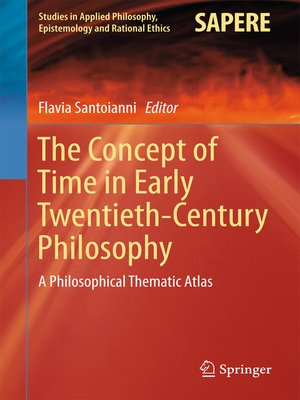The Concept of Time in Early Twentieth-Century Philosophy
ebook ∣ A Philosophical Thematic Atlas · Studies in Applied Philosophy, Epistemology and Rational Ethics
By Flavia Santoianni

Sign up to save your library
With an OverDrive account, you can save your favorite libraries for at-a-glance information about availability. Find out more about OverDrive accounts.
Find this title in Libby, the library reading app by OverDrive.



Search for a digital library with this title
Title found at these libraries:
| Library Name | Distance |
|---|---|
| Loading... |
This book presents a collection of authoritative contributions on the concept of time in early twentieth-century philosophy. It is structured in the form of a thematic atlas: each section is accompanied by relevant elementary logic maps that reproduce in a "spatial" form the directionalities (arguments and/or discourses) reported on in the text. The book is divided into three main sections, the first of which covers phenomenology and the perception of time by analyzing the works of Bergson, Husserl, Sartre, Merleau-Ponty, Deleuze, Guattari and Derrida. The second section focuses on the language and conceptualization of time, examining the works of Cassirer, Wittgenstein, Heidegger, Lacan, Ricoeur and Foucault, while the last section addresses the science and logic of time as they appear in the works of Guillaume, Einstein, Reichenbach, Prigogine and Barbour. The purpose of the book is threefold: to provide readers with a comprehensive overview of the concept of time in early twentieth-century philosophy; to show how conceptual reasoning can be supported by accompanying linguistic and spatial representations; and to stimulate novel research in the humanistic field concerning the complex role of graphic representations in the comprehension of concepts.







